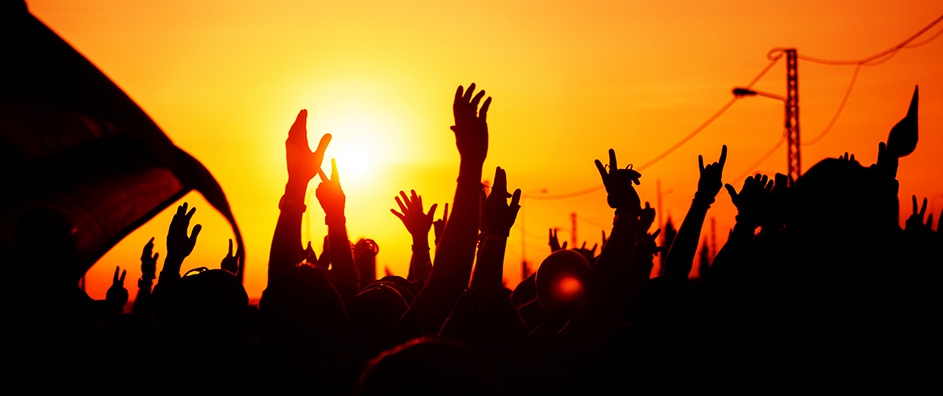The views expressed in our content reflect individual perspectives and do not represent the authoritative views of the Baha'i Faith.
When Abdu’l-Baha spoke in New York about “the banner of spiritual democracy” being “hoisted aloft,” what did he mean?
We might say that a democracy becomes spiritual when it combines fellowship with those around you, a love of truth, and other qualities of the soul that contribute to the well-being of society. These themes were explored in more depth in the first piece in this series.
Of course, democracy means “the rule of the people” and “popular sovereignty.” Until the 1800s the word democracy was used to refer to something undesirable, what today we might call mob rule. Since then, ideological factions of all stripes have given it a more positive meaning and celebrated it in one form or another. For example, Baha’u’llah at one place in his writings addressed the city of Tehran, the capitol of Iran, at the time ruled by a despotic, authoritarian government:
Erelong will the state of affairs within thee be changed, and the reins of power fall into the hands of the people. Verily, thy Lord is the All-Knowing. – Baha’u’llah, The Most Holy Book, p. 54.
Aside from any discussion of what form of government works best for a given society, there is the broader question of how the generality of a population can take charge of its own development. On this topic, a broad Baha’i vision of democracy emerges. It does not necessarily involve a re-interpretation of existing democratic traditions, nor does it expand on an already existing concept and practice of democracy or make statecraft the main focus. Rather, a Baha’i perspective on social and spiritual transformation contains at its core a vision of the people exercising influence over their own affairs. One could justifiably call this concept spiritual democracy.
Let’s explore this concept by working backwards from a very general perspective on Baha’i social teachings, to see how they might fit into the range of meanings opened up by Abdu’l-Baha’s term spiritual democracy.
One excellent place to look for a general framework of the Baha’i social teachings is a 1995 statement entitled The Prosperity of Humankind, prepared by the Baha’i International Community, an organization with consultative status with parts of the United Nations system. I strongly encourage readers to take in the entire document. Here is a key section from the introductory paragraphs:
History has thus far recorded principally the experience of tribes, cultures, classes, and nations. With the physical unification of the planet in this century and acknowledgement of the interdependence of all who live on it, the history of humanity as one people is now beginning. The long, slow civilizing of human character has been a sporadic development, uneven and admittedly inequitable in the material advantages it has conferred. Nevertheless, endowed with the wealth of all the genetic and cultural diversity that has evolved through past ages, the earth’s inhabitants are now challenged to draw on their collective inheritance to take up, consciously and systematically, the responsibility for the design of their future. – The Prosperity of Humankind, Baha’i International Community, p. 1.
Although God created humanity as one people, we have always built our societies around our differences: “tribes, cultures, classes, and nations.” But with the interconnection of modern society all of that is rapidly changing, and humanity is coming to know itself consciously as one people. The Prosperity of Humankind speaks of a global community just now coming into existence when it says “the history of humanity as one people is now beginning.”
So in a spiritual democracy, the people means all of humanity. But how do we rule such a diverse global population? The Prosperity of Humankind makes clear that we are not passive recipients of global unification. It’s up to us to create a path towards a better, more unified and more peaceful world. In the BIC statement, the last sentence is the most important:
…the earth’s inhabitants are now challenged to draw on their collective inheritance to take up, consciously and systematically, the responsibility for the design of their future. –Ibid., p. 4.
This isn’t what most of us would usually think of when we think of rule. It doesn’t involve the people giving orders and following through on commands. Instead it speaks of responsibility, a very different concept. For example, I am responsible for the maintenance of my truck. That doesn’t mean I’m necessarily good at it or that I’m in control of what happens. It just means that when action is necessary, I do whatever I need to do to get things done.
Responsibility means a call to action, a constant reminder to think about what causes humanity to progress and move forward. It stimulates our will power and urges us on to the next step. In this case, the Baha’i teachings ask us to focus our attention on the design of our future. We have to figure out what kind of world we want to live in, and we have to figure out how we’re going to get there.
From these brief reflections, I think a slightly clearer image comes into view of what Abdu’l-Baha might have meant by the expression spiritual democracy.
In the building of a global spiritual democracy, think about responsibility as a better concept than rule. Responsibility releases us from the expectation that we control and dominate the human world around us. After all, we can’t solve the problems of the world through a massive display of collective will-power—but at the same time we do have the power to solve our problems. Progress is possible. In that light, responsibility summons us to care. It calls on us to persevere together in our endeavors to make the most of our time upon the earth. This notable contribution of the Baha’i Faith to the tradition and practice of democracy imparts a vision of humanity as one people, taking initiative for the sake of future generations.
Next: Power to the People! A Baha’i Vision of Capacity-Building
















Comments
Sign in or create an account
Continue with Googleor